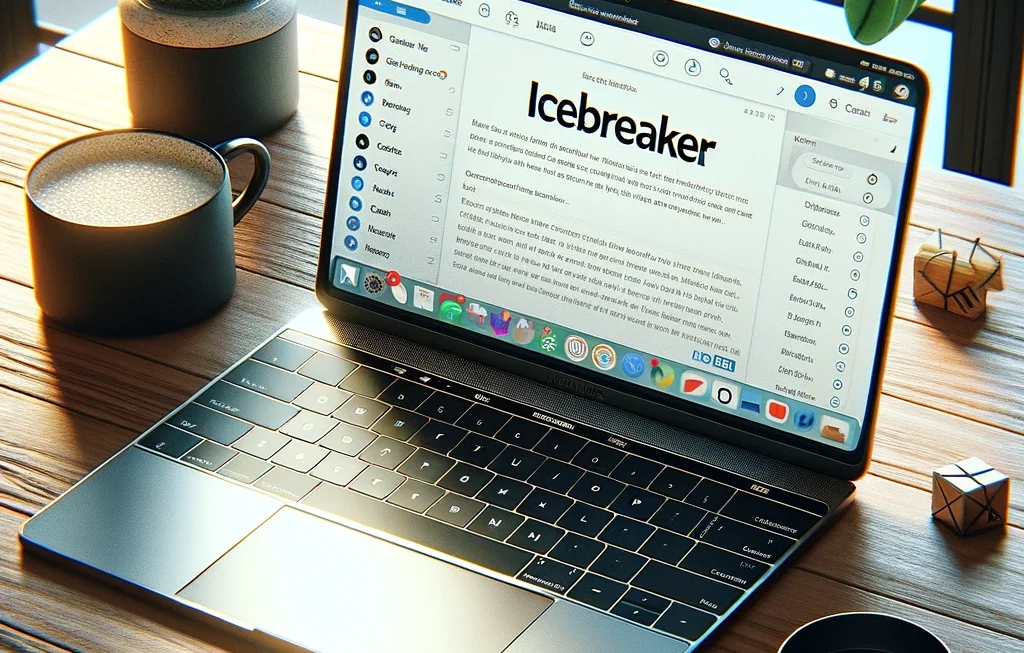When you’re drafting an email to a CEO, it’s like preparing a key presentation for the board; every detail matters, and first impressions are pivotal. CEOs are the pilots of their companies, often inundated with communications, making it imperative that your email stands out for its clarity, conciseness, and relevance. This blog will delve into the nuances of emailing a CEO, providing examples, etiquette tips, and templates that will empower you to write with confidence and poise.
Understanding the CEO’s Perspective:
CEOs are the strategic minds behind companies, often dealing with high-stakes decisions daily. Their time is their most precious commodity, so when you email a CEO, your message should be laser-focused, offering value and respect for their limited time.
Subject Line:
The subject line is the gatekeeper to your email. It should succinctly preview the email’s intent, capturing attention without being overly sensational.
Example:
- Poor: “Meeting”
- Better: “Request for Your Input: Upcoming Marketing Strategy Meeting”
Greetings and Salutations:
Start with a formal salutation, using “Dear” followed by their title and last name. If you have an established relationship and they have invited you to address them by their first name, it is then appropriate to do so.
Example:
- Formal: “Dear Mr. Smith,”
- Less formal: “Hello Jordan,” (if you’ve been invited to use their first name)
The Opening Sentence:
Begin with a polite thank you for their time or a brief reference to any recent interaction or mutual connection, which can serve as a warm-up for your main message.
Example:
“I hope this message finds you well. I wanted to express my gratitude for the insights you shared during last week’s webinar.”
Crafting the Body of the Email:
The body of your email should be where you get down to business. Here are some expanded tips:
- Be Brief and Direct: Your email should read like an executive summary. Include only the information necessary to understand your request or message.
- Articulate the Purpose Clearly: State your objective within the first few sentences. This ensures that if the CEO reads nothing else, they understand the email’s intent.
- Provide Context When Necessary: Give enough background to inform but not overwhelm. Consider bullet points or bold text for critical issues to draw attention.
- Highlight Important Information: Distill your message to its essence, and use formatting tools wisely to emphasize key points.
- Be Professional: Stick to a professional tone, but don’t be robotic. It’s possible to be both warm and formal.
Closing Remarks:
In your closing, restate the action you seek from the CEO. Be clear about what you need from them – a decision, a meeting, their input?
Example:
“I would greatly appreciate your approval on the proposed budget by Thursday to meet our vendor’s deadline.”
Sign-Off:
- End with a professional and respectful sign-off, followed by your name and essential contact information.
Example:
- Formal: “Sincerely, [Your Full Name]”
- Less formal: “Best regards, [Your Full Name]”
Proofreading and Review:
Errors can detract from the message’s professionalism, so review your email multiple times or have a colleague check it.
Follow-Up:
A follow-up email can be sent if you don’t hear back within a week or so. Be courteous and succinct, gently reminding the CEO of your previous email.
Email Etiquette:
- Use a professional email address.
- Keep your formatting simple and mobile-friendly.
- Avoid using jargon or acronyms that may not be familiar to everyone.
- Do not mark your email as “High Priority” unless it truly is urgent.
Email Templates and Explanations:
Template 1: Meeting Request
Subject: Scheduling Your Participation in the Strategic Planning Meeting
Dear Mr. Smith,
I hope this email finds you well. Following our recent quarterly review, I am reaching out to request your presence at our upcoming strategic planning meeting on December 5th. Your insights into our expansion into European markets are invaluable, and your leadership would be greatly appreciated as we discuss strategic initiatives for the coming year.
– Proposed date and time: December 5th, 2 PM – 4 PM
– Key topics to be covered: European Market Expansion, Q1 Product Launch, Resource Allocation for 2024.
Please let me know if this date and time suit your schedule, or if there is an alternative that you would prefer.
Thank you for considering this request. I am looking forward to your confirmation.
Warm regards,
[Your Full Name]
[Your Position]
Explanation:
This template is concise, with a clear subject line and a respectful request for the CEO’s presence. It outlines the importance of their attendance and provides specific details, allowing the CEO to understand the meeting’s relevance quickly.
Template 2: Decision Approval
Subject: Approval Needed for Finalizing Q2 Marketing Budget
Dear Mrs. Hernandez,
I hope this message finds you in good spirits. As we approach the final planning stages for our Q2 marketing initiatives, we seek your approval on the revised budget that aligns with our new strategy.
Key points for consideration:
– 20% budget increase for digital advertising to target new demographics
– Allocation of funds for market research in the Asia-Pacific region
– Proposed cuts to traditional media spend in line with digital transition trends
The marketing team has prepared a detailed report for your review, which is attached to this email. Your approval by the end of this week would be crucial to keep us on track for the planned campaign launches.
Thank you for your attention to this matter. I am available for any questions you may have.
Best regards,
[Your Full Name]
[Your Position]
Explanation:
The template directly addresses the need for the CEO’s decision, presenting key points in a bulleted format for easy scanning. An attachment provides additional details, and the sign-off includes a polite nudge regarding the importance of the deadline.




